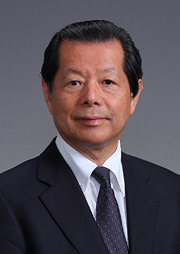Bio
Yoichi Funabashi is Chairman of the Rebuild Japan Initiative Foundation and a former Editor-in-Chief for the Asahi Shimbun. He served as correspondent for the Asahi Shimbun in Beijing (1980-81) and Washington (1984-87), and as American General Bureau Chief (1993-97). He won the Japan Press Award, known as Japan’s “Pulitzer Prize,” in 1994 for his columns on foreign policy. His books in English include The Peninsula Question (Brookings Institute, 2007); The Fukushima Daiichi Nuclear Power Station Disaster: Investigating the Myth and Reality (Routledge, 2014); Japan in Peril?: 9 crisis scenarios (CLSA, 2014); Quiet Deterrence: Building Japan’s New National Security Strategy (Rebuild Japan Initiative Foundation, 2014); Anatomy of the Yoshida Testimony (Rebuild Japan Initiative Foundation, 2014); Examining Japan’s Lost Decades (Routledge Contemporary Japan Series, 2015). He received his B.A. from the University of Tokyo in 1968 and his Ph.D. from Keio University in 1992. He was a Nieman Fellow at Harvard University (1975-76), a visiting Fellow at the Institute for International Economics (1987), a Donald Keene Fellow at Columbia University (2003), and a visiting professor at the University of Tokyo Public Policy Institute (2005-2006).

